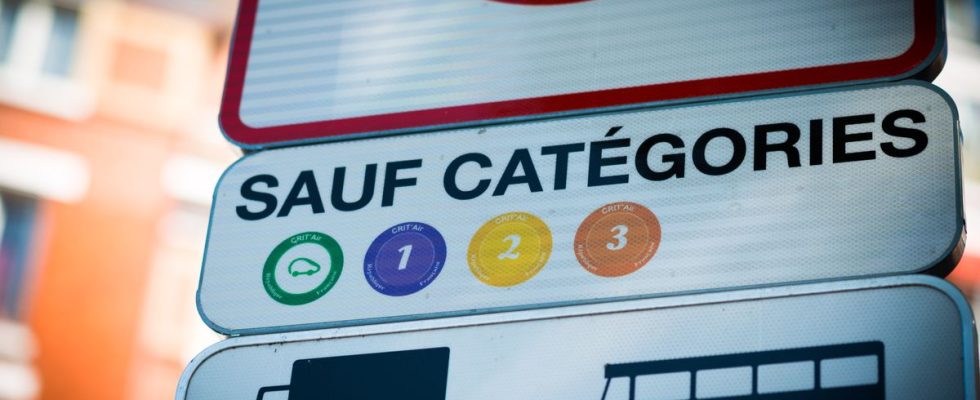“ZFE: Zone with great hassle, zones with strong exclusions, and there is worse…” This Thursday morning, Philippe Tabarot spared his assistance the worst terms he could read. However, the Senator of the Alpes-Maritimes, and member of the Regional Planning and Development Commission, must have seen some dissatisfaction, he who came to express his first feelings after the closure of the citizen consultation on the acceptability of the Zones to Low Emission Zone (ZFE), and whose final report will be presented in mid-June.
Organized from April 17 to May 14 by the Senate, this consultation aimed to take the pulse of the concerns and questions on this subject which concerns eleven metropolises and around thirty agglomerations in France. “We can already bring out a lot of work items thanks to an exceptional participation. A total of 53,346 people completed the two questionnaires (one for individuals and one for professionals – Editor’s note),” Philippe Tabarot told 20 minutes.
86% of individuals opposed to EPZs
And the result is clear: a very large majority of respondents are opposed to the deployment of EPZs. 86% for individuals, 79% for professionals. An answer that does not call into question the future application of ZFEs according to Philippe Tabarot: “It is indeed a consultation on the principle of voluntary service, so we take the result of this consultation with caution. Especially since it is a public health issue”
As proof, the Senator advances figures. Thus, 97% of respondents were familiar with the issues of EPZs, compared to “one in two people in the population according to the polls” (underlining in passing the government’s lack of communication on the subject), and a quarter of them live in, or nearby, the metropolis of Greater Paris.
However, the commission took care to call on a “Data Scientist”, an expert in the use of data, to learn as much as possible from it. “We were able to analyze trends and correlations between the various responses. »
A social time bomb
On the whole, opposition to the deployment of EPZs focuses on the social consequences they could entail: “a real breach of equal access to the city centre”, “pure social exclusion”, “a feeling of injustice , when the work is concentrated in mainland France but does not pay enough to have access to the acquisition of housing in mainland France, but also to a clean vehicle. »
Also, the senators have already identified four main obstacles. The first, cited by professionals and individuals alike, regardless of their socio-professional category, is the high cost of clean vehicles. Important data since 97% of respondents own a motorized vehicle, 42% of which are listed Crit’air 3, 4, 5 or out and therefore already concerned, or very soon, by the traffic restrictions imposed by the ZFEs.
This is why Philippe Tabarot recalls that the Senate had encouraged the government to generalize the zero-rate loan offer for all clean vehicles, a request refused at the time by the joint joint committee. It is therefore not impossible to review this request among the recommendations of the forthcoming report. “Especially since the composition of the Assembly has changed slightly,” underlines the Senator, a bit teasing.
Insufficient supply of public transport
But the zero-rate loan will probably not be enough to sufficiently reduce the “outstanding charge” for the most modest households. Then charge manufacturers to make an effort on the cost of electric vehicles, according to Philippe Tabarot.
The cost of these vehicles is all the more problematic since the most modest are often those who also live the farthest from city centers, areas where the public transport network is not the most important. 83% of respondents to the consultation consider that the alternatives to the individual vehicle are not sufficient. A figure that rises to 93% for the inhabitants of rural areas alone. “There is a real correlation between the degree of acceptability of EPZs and place of residence,” confirms Philippe Tabarot.
And if the majority of metropolises, like Greater Paris, are working on this subject, the senator recalls that “the transport time is long” and that the development of the offer will still take time before leading to a postponement. massive modal. This is the reason why 47% of individual respondents consider the implementation of EPZs “too fast”. A remark that echoes the postponements of application observed in several metropolises.
Two imperatives: Control and harmonization
Different local authorities which will also have to harmonize. After having met nearly one hundred and fifty elected officials from around fifty towns, Philippe Tabarot insists on the need to agree on the timetable and the various standards and derogations proposed which contribute to the misunderstanding of the subject. “It is through this synchronization that the acceptability of such a measure will pass. »
Before finalizing its report, the Commission will still have to meet the Minister of the Interior to agree on the methods of control, “today almost non-existent” despite fines of 68 euros for individuals and 135 euros for professionals.

